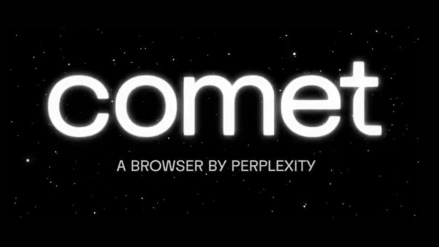The internet is a vast ocean, and for decades, search engines have been the compasses guiding users through its depths. Adding to this is now a new vessel: Comet, an ‘agentic’ web browser designed to take AI-driven browsing to the next level, or at least that is what they claim to do. While the company has revealed little about the browser’s core technology, it has hinted at agentic AI capabilities, suggesting a system that can automate tasks, conduct deep research, and streamline browsing in ways traditional browsers do not. It remains unclear whether Comet will be based on Chromium, the open-source engine powering most modern browsers, or if it will take a different architectural approach.
While details remain scarce, CEO Aravind Srinivas has teased the project as a major engineering feat, inviting users to sign up early for what promises to be a futuristic way of navigating the internet.
Is this going to be the next search revolution?
From what is understood, Comet is expected to leverage LLMs (Large Language Models) in ways to introduce a new era of AI-assisted navigation where deep research and task automation become second nature.
But the big question remains—will Comet be a standalone challenger to the likes of Chrome and Safari, or is it just another Chromium-based browser with AI bells and whistles? Perplexity has kept those details under wraps. What’s clear, however, is that the company isn’t shying away from tackling industry giants or emerging players like Dia, the AI-first browser from The Browser Company.
AI-powered browsers
Perplexity’s timing couldn’t be more strategic. With Google’s dominance in search showing cracks—evidenced by the rise of AI-driven alternatives—there’s a growing appetite for tools that go beyond traditional search boxes. However, all this music needs to have a tight foundation too with execution being a strong pillar. It is to be seen whether Comet’s AI-powered features will actually help in a leap forward or if it is just another enhancement. More importantly, will it be fast, secure, and compatible across devices? As of now, it’s unclear whether Comet will launch solely for mobile or extend its reach to desktops.
What does this mean for advertisers and publishers?
An AI-powered browser like Comet could really shake up the ad tech world by moving away from traditional keyword searches and focusing more on user intent and context. This could challenge the current digital advertising models, making brands and publishers rethink how they approach online marketing. Plus, with AI-driven browsers providing direct, well-curated answers within the interface itself, users may not need to visit external websites as much. This is already causing some concerns, like the Chegg lawsuit against Google, where they claim AI summaries have hurt their website traffic and subscriptions.
As fewer people engage with traditional web pages, display ads and pay-per-click models may not be as effective anymore. Advertisers might have to start thinking about how to integrate their messages within AI-generated content or team up with platforms for more visibility. Publishers, on the other hand, could see a drop in ad revenue and may need to adjust by optimising their content for AI platforms or finding new ways to make money. On the flip side, advertisers have the chance to take advantage of AI-driven targeting, which could lead to more precise and relevant ads, improving their ROI as the browsing experience evolves.
For now, Comet is more question mark than breakthrough: Perplexity is playing for high stakes. Whether this browser lives up to its cosmic name or burns out like a shooting star remains to be seen.
